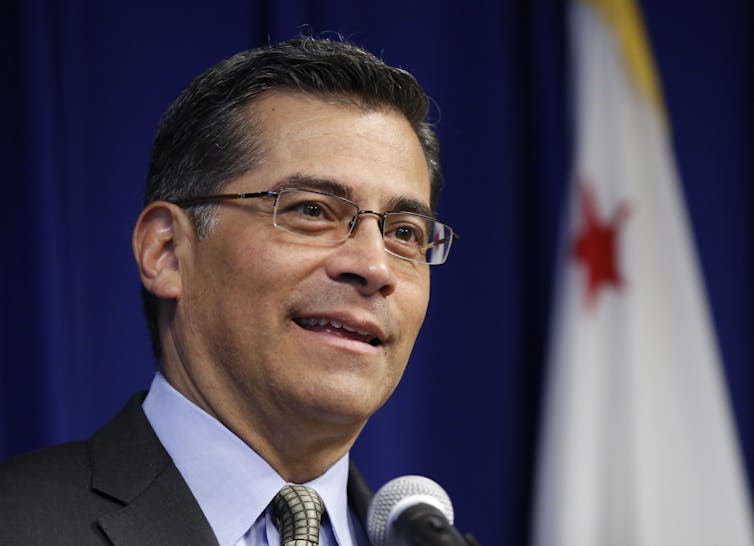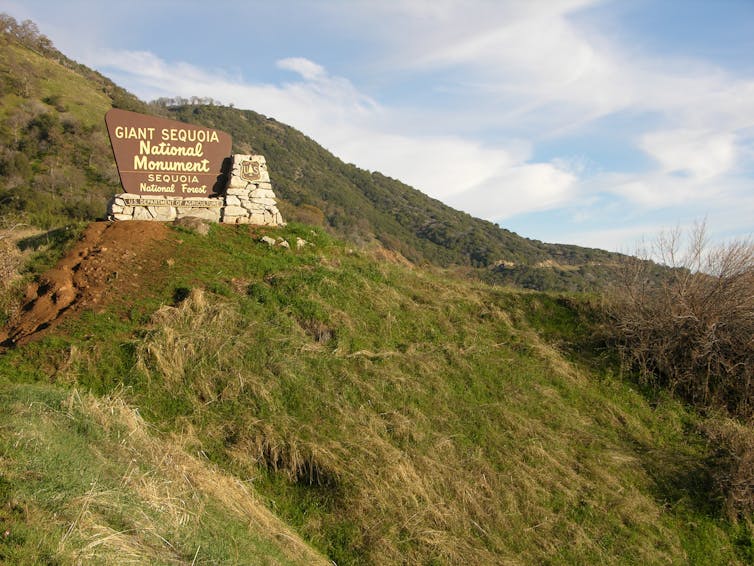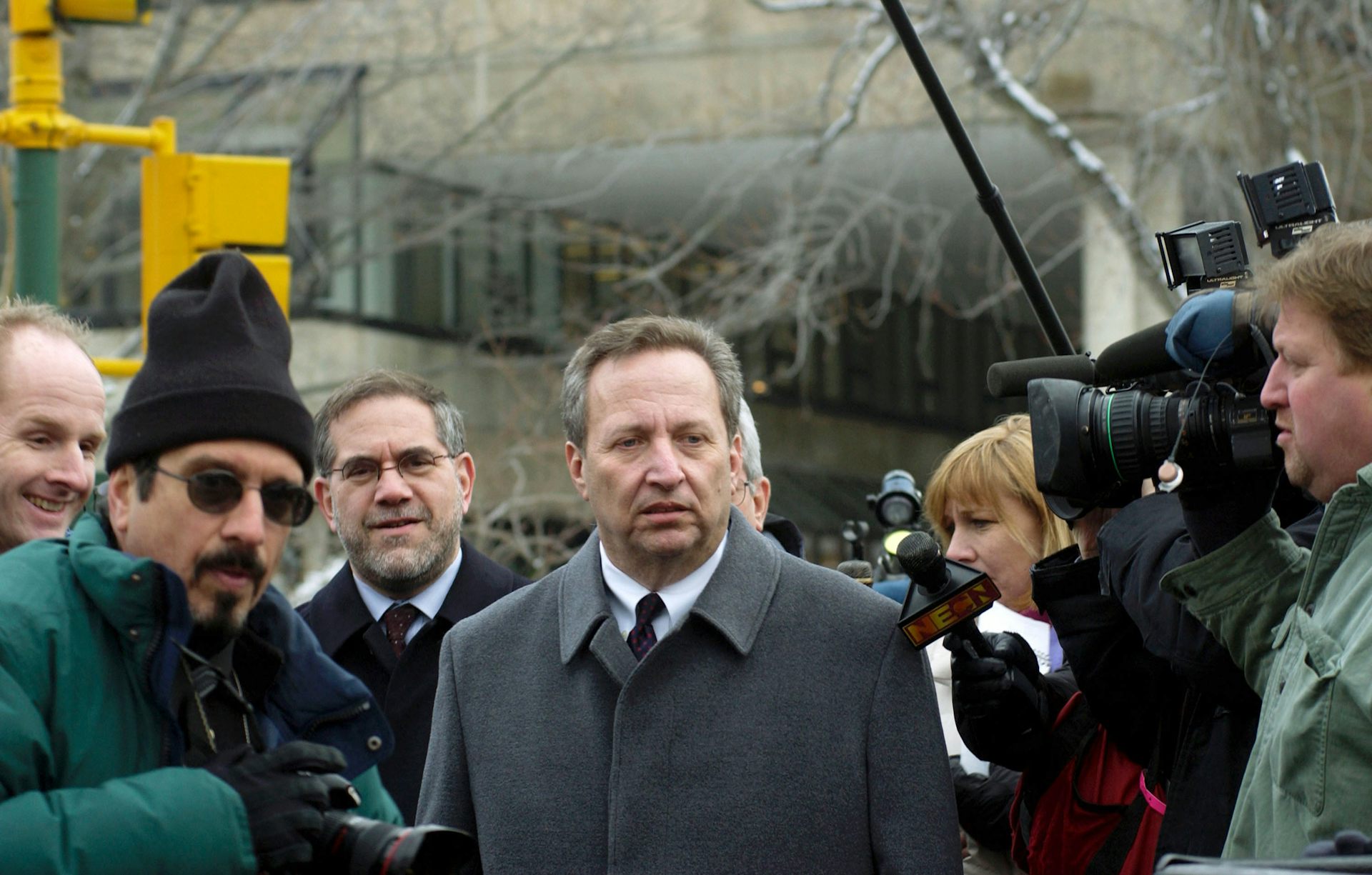Once at the vanguard of national policy, California plays defense under Trump
Defiant against Trump's policies on immigration and environment, California finds itself defending its way of life – the California Dream itself.

On March 13, President Donald Trump inspected towering border wall prototypes at the U.S.-Mexico border during the two-day trip to California – his first to the Golden State since the November 2016 election.
Surely he did not expect a warm welcome. Not only did Trump lose the state by more than 4 million votes, but his trip comes hard on the heels of a lawsuit filed by the U.S. Justice Department against the state of California in federal court to strike down legislative initiatives to protect immigrants and block their enforcement.
It was Xavier Becerra, California’s attorney general, who offered a very public rebuttal to Washington’s move. Unfurling the Constitution’s 10th Amendment, he asserted that the states, not federal officials, are the final authority on public safety.
“We believe we are in full compliance with the federal constitution and federal law,” Becerra said.
This is the latest evidence that Becerra is the Golden State’s face of resistance to the Trump administration’s policies – especially its attempts to roll back progressive immigration and environmental policies that are central to California’s identity.
Becerra is mounting a rearguard action because he has little choice. Even so, his defensive posture runs counter to the no-holds-barred approach that defined California’s post-World War II drive for economic growth and social justice.
Challenging Trump
Becerra is the hardworking son of immigrants and the first in his family to go to college. He finished law school in 1984, was elected to the state assembly, and then served in the state’s Department of Justice before winning an impressive 12 terms to the U.S. House of Representatives.

His personal story is etched into his staunch advocacy for the poor and marginalized – a stark contrast to the president’s silver-spoon background. It is no wonder Gov. Jerry Brown tapped Becerra to replace newly elected Sen. Kamala Harris as attorney general in January 2017. Becerra became the first Latino to hold this office in California.
Becerra’s tough-minded approach to his latest job has made him a frequent and forceful critic of the Trump administration’s immigration policies. He has also championed a kind of states-rights environmentalism by attacking the administration’s attempts to gut clean air and water regulations, destroy California’s green energy economy, and undercut protections for national forests, parks, grasslands and refuges.
Becerra’s relentlessness earned him praise from the environmental magazine Grist as “The Planet’s Lawyer.”
California’s cultural clout
Becerra’s defensive strategy is born from what historian Kevin Starr argued in his magisterial study of California is the state’s particular genius: It is the “best place in the nation to seek and attain a better life.”

Fueled by a generous stream of tax dollars, in the 1960s and 1970s the state’s educational systems became the envy of the world. Its high-speed highways, highly engineered water systems, agricultural productivity, artistic energy and technological creativity inspired visitors from near and far.
Today, its many benefits are broadly accessible: Beaches are public, parks and open spaces plentiful. Higher education is relatively cheap. Here, democracy has flourished, or at least it could do so. Where it has not, people fought to ensure that it would.
Since the mid-20th century, for example, thousands of migrant farm workers in the Central, Salinas and Imperial valleys have picked cotton, harvested fruits, nuts and produce. They have endured oppressive conditions for decades, but when they formed the United Farm Workers of America in the early 1960s and launched the first nationwide grape boycott, they gained an important measure of control over their lives.
So have Native Americans, African-Americans, Asian Americans, Latinos, women and people in the LGBTQ community. Although their struggle to secure increased rights and opportunities did not always originate in California, and although there were setbacks along the way, their arguments gained greater political visibility, social currency, and cultural clout when manifest on the coast. The state, as Kevin Starr once asserted, nurtured everyone’s golden dreams.
Setting pace on public health
Even those who dreamed of blue skies. It has also taken decades to scrub the state’s polluted air, as grassroots activists, educators, scientists and some public officials fought long and hard against entrenched opposition in the state capital, among Detroit automakers and within the federal government. But eventually they succeeded in securing what now are the nation’s toughest environmental controls.
It is not by happenstance that the air-monitoring EPA owes its existence to a Californian – President Richard Nixon signed it into law December 1970. Or that the Clean Air Acts grants California the right to institute stricter smog controls than the federal government requires of the rest of the nation.
For all its progress in ameliorating pressing racial, political, social and environmental problems, California today finds itself in a conundrum. To continue to advance what Becerra’s characterizes as the state’s “forward-leaning” mission, it must vigorously defend its past achievements. But the vigor of that defense may complicate its ability to plan for and invest in a future that expands on California’s democratic promise.
This is an updated version of an article originally published on June 17, 2017.
Char Miller does not work for, consult, own shares in or receive funding from any company or organization that would benefit from this article, and has disclosed no relevant affiliations beyond their academic appointment.
Read These Next
Cuba’s speedboat shootout recalls long history of exile groups engaged in covert ops aimed at regime
From the 1960s onward, dissident Cubans in exile have sought to undermine the government in Havana −…
Tiny recording backpacks reveal bats’ surprising hunting strategy
By listening in on their nightly hunts, scientists discovered that small, fringe-lipped bats are unexpectedly…
Former Harvard president Summers’ soft landing after Epstein revelations is case study of economics’
Despite repeated calls for the university to revoke his tenure, the economist held onto his teaching…





